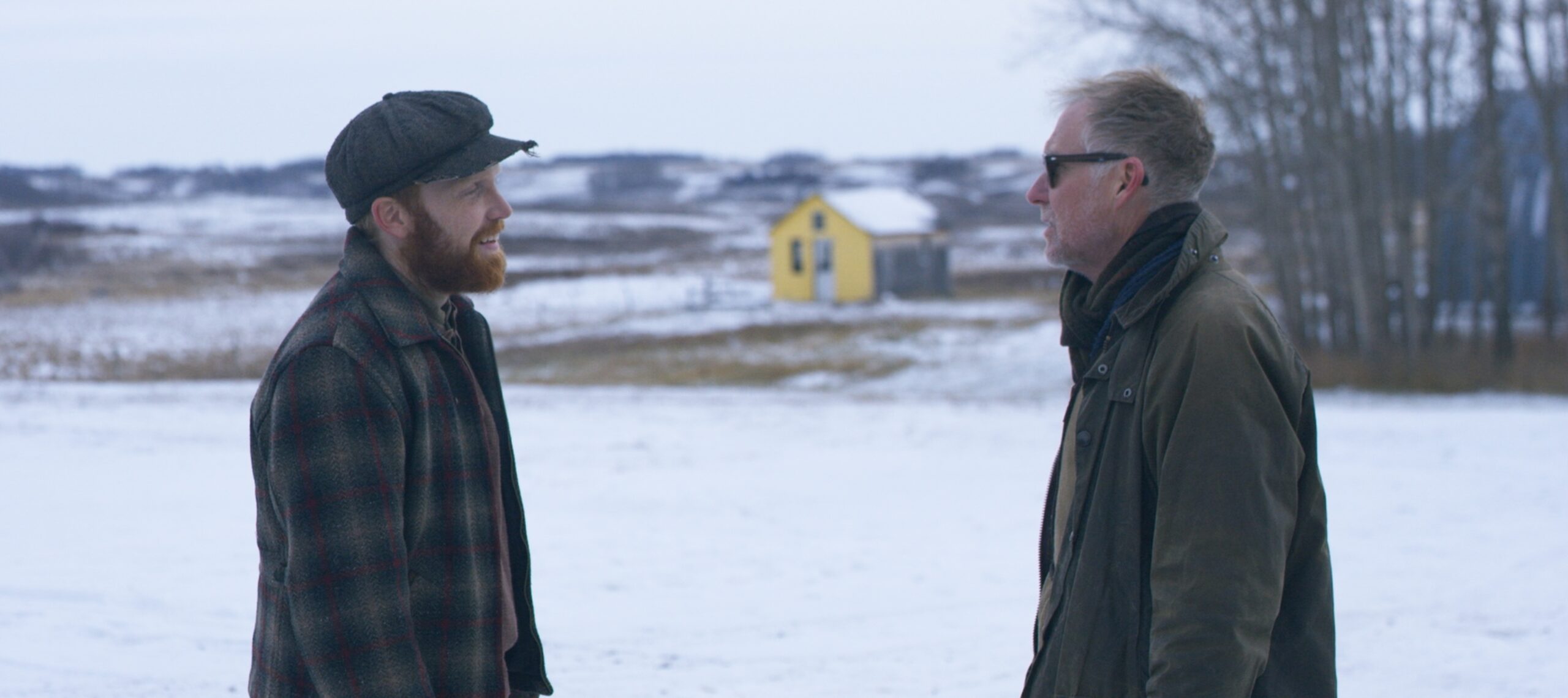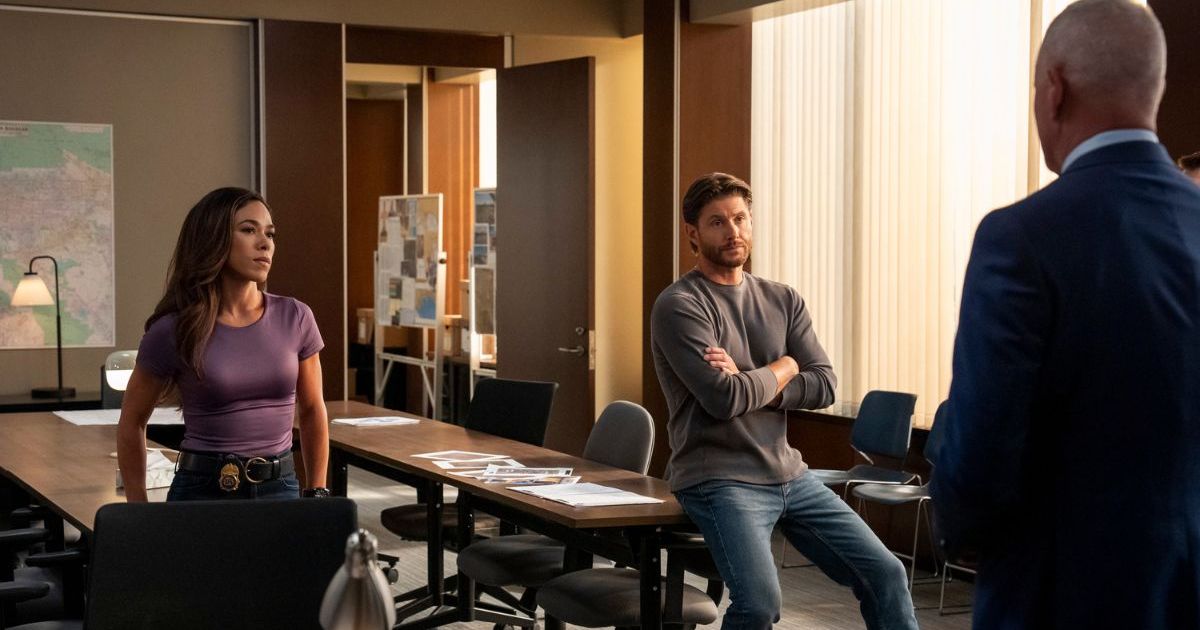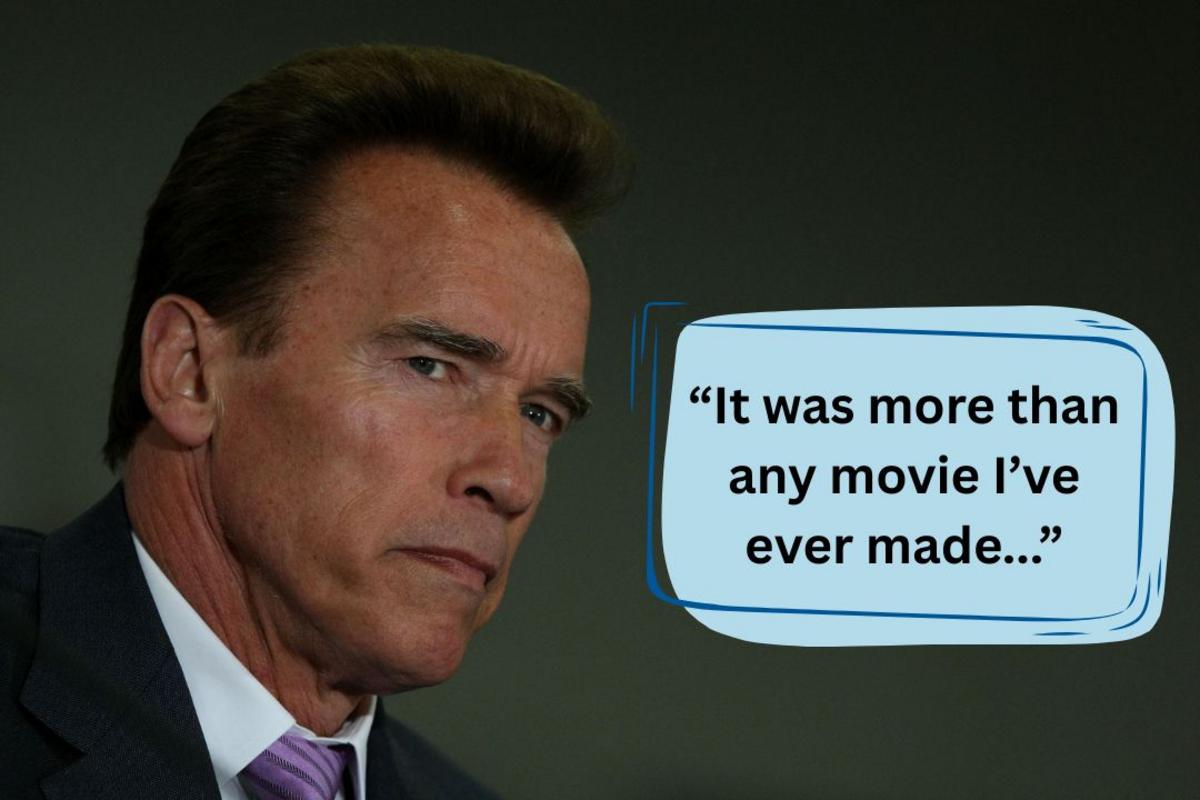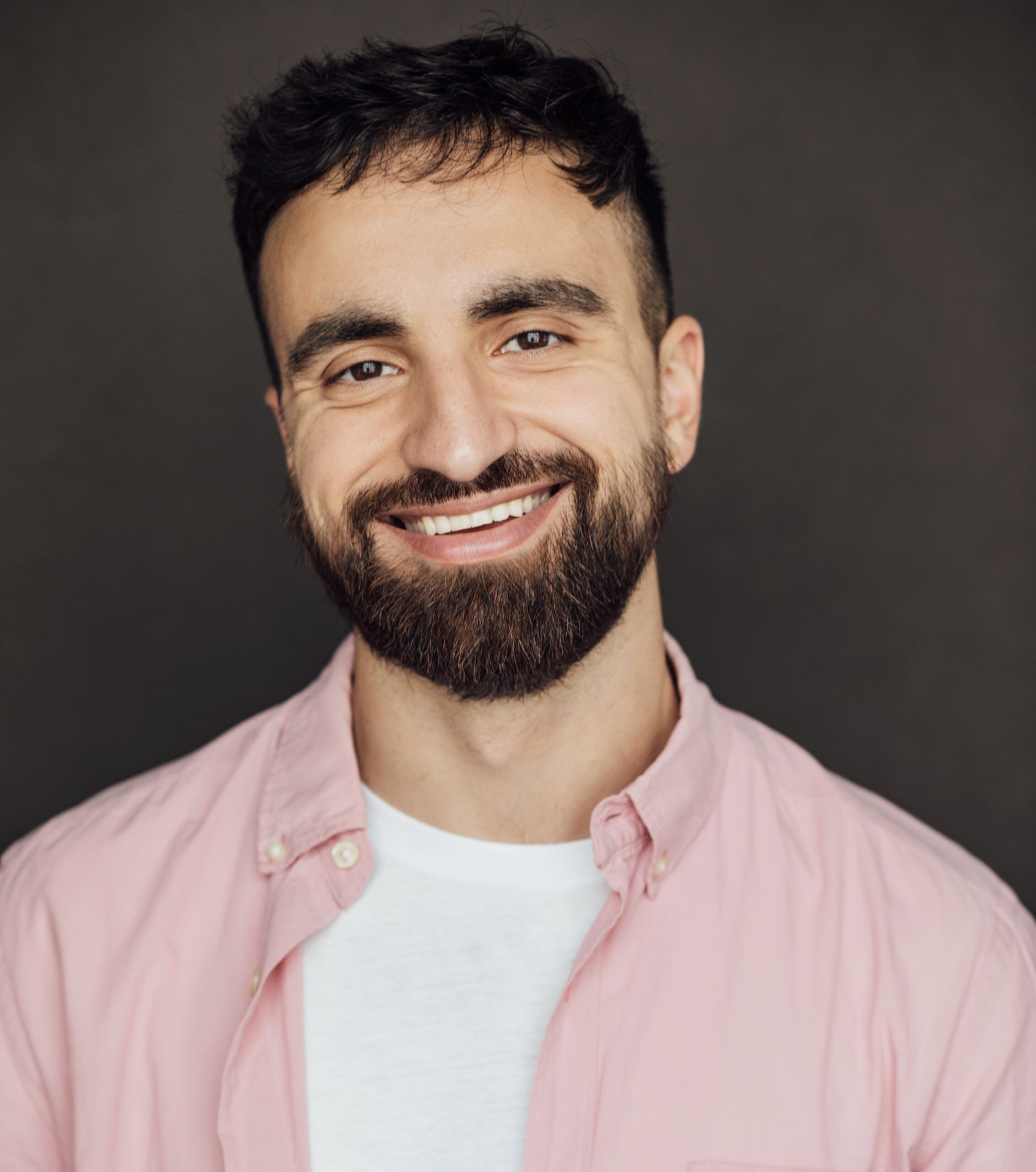Shawn Bordoff is always saying how Vancouver thrives with local talent, and I couldn’t agree more with that statement. It’s always awesome when we get to feature somebody from here and talk about them and their film after talking to them at a local cafe or through an online call. Today’s fantastic filmmaker is Carl Bessai, who works numerous jobs when filmmaking including writing, directing, producing, and operating a camera. He’s had quite an amazing run of his films through festivals and his most recent work was shot both locally and in Saskatchewan. Carl’s latest film was inspired by his latest personal feelings after working on films all his life and feeling like focusing on something else for once. The film is called Field Sketches which stars Vincent Gale as Peter, an architect who has struggled with his creative roots in architecture, and he even tries to branch off working his own business. When a deal with a client falls through, Peter decides to move back to his old family farm where he feels he can thrive. But it’s a tougher struggle because country life isn’t the only hardship out there, but the winters of Saskatchewan are colder than the word ice itself. I would sort of know myself, I have a brother who lives way out there. Peter shivers and struggles and lives alongside his cousin George who rarely is around in the snowy season, but Peter also gets to know a few other people who live around the area. Meanwhile, his college graduate daughter Molly (June Laporte) worries about how her father is managing out there and even considers checking on him. It’s a great Canadian film that not only shows the amazing landscapes that fascinate the rest of the world, but also creativity and how it should be managed. I always enjoy talking to local talent as it feels like I’m hanging out with a neighbour, so I arranged for a meetup with Carl Bessai, and June Laporte who were both happy to chat about the film over a cup of locally brewed coffee on Main St. Carl explained how they went off to Saskatchewan together like a little family, or theatre troop. Everyone stayed in a little motel around the middle of nowhere, and every day they’d take a little trip in a van to the shooting location. It wasn’t just a film shoot way out on the farm, it felt like an adventure where everyone got to have fun. They told jokes, enjoyed meals, and engaged in some other activities. While there wasn’t much crew, some of the actors got involved in doing some of the crew work like slating. The actors got to know each other a lot better through this process. I got to know these two better through this interview, and now you will get to know them and more about this film too. Here are the plans for a properly constructed film:
HNMAG: So tell me, how has Field Sketches differed from anything else either of you have made or worked on?
Carl Bessai: For me, everything’s kind of personal. The film I’m working on at any given time is sort of a reflection of how I’m doing at the moment I’m at in my life. I think being the age and stage I am in life, there’s something reflective about this story. I wanted to do something personal, something that talked a little about where I feel in the world right now and just a piece of reflection on family history. I have a daughter who’s younger than June, but I wanted to bring a kind of father-daughter narrative into it and look at this man whose life is kind of shifting.
June Laporte: For me, it was such a wonderful thing to be a part of during the strike when no one was working. I was brought on board in a workshop way, like it was workshopping the script: Here’s this idea, we’re sitting down talking about it, reading it, and I get to work with wonderful actors. Vincent, Sara Tanning. Actors I’ve known for years but never got to work with on anything. Carl really let us make the characters our own, it started at the point of his own life and his perspective, and then all of us were really feeling this sense of like what are we doing? When all of our work stopped, we were in this place of what we want to do, and what was creating anything. I was in that place, I still am a lot of the time. It was showing a father going through that, also a daughter at a different stage in her life.
Carl Bessai: If you’re going to tell a story, and have a 20-something run of a movie, or story, I want June to be collaborating on that, creating that through those ideas. Then I can map out a narrative but it’s nice to get something authentic from the people who are living in that story. I tried that a lot with the workshops, that’s becoming my way of working. I really like to get actors in early, and make the conversation what the film’s about instead of casting and shooting right away.
June Laporte: Yeah, it’s such a gift. That just doesn’t happen, so it’s very cool. I think we all felt like an ownership of story…
Carl Bessai: Like getting invested. Filmmaking is super collaborative, by nature but it has to be, to be good.
HNMAG: You mentioned how it was made during the strike. What made you get into making something around then?
Carl Bessai: It ocurred to us that with the strike, there was just a lack of work. Actors in particular, in the city. It’s difficult to pin people down on an independent film schedule that’s a bit hodge-podge, is very low-budget. Having flexibility is rare with a lot of actors. They’re busy people, and so we’ve been trying to make something happen in the time there was a lull. The strike didn’t affect me personally that much, but it certainly did the cast. It was enormous.
HNMAG: Seemed like you had minimal crew helping you with Field Sketches. How was the consistent lighting and set-up made with working in such small areas?
Carl Bessai: I’ve really worked hard to reduce my footprint, it’s kind of an environmental philosophy, but it’s also a cinema philosophy. I feel like to make a personal film, films that are meaningful to me, I want to have as few intrusions on the process as possible. One of the reasons I shoot my own films is I found it’s really a way to reliably give the floor to actors so the more I can keep actors in their characters and scenes, the more interested they are in performance and the better they are. The problem I’ve always seen in the larger projects I’ve worked on is all the roles are compartmentalized, people are just trying to do good work. I respect that, but there’s tendency for the priorities of different departments interfere with what I consider to be the essence of good moviemaking and acting. By controlling the technical side of filmmaking, I use as little lighting as possible, a few pieces here and there where it’s needed. You stage and block to use as much natural lighting as possible. But you have to move quickly because the lights always change. The nice part of that is, you show up and start acting. You start acting, you start filming, and you catch the scenes that you want quite quickly, then move on to the next thing. You’re done a scene in 2 hours.
June Laporte: Yeah, it was a very smooth process. Not a lot of stoppy-starty cut, just rolling right through takes, I love that way of working, personally. This helps keep me running, and Vince and I did a lot of running of lines and rehearsal-type stuff where he’d occasionally come in and before the shoot, so we’d be ready to just roll into it.
Carl Bessai: Once we start shooting, we don’t stop until the scene’s done. I don’t like turning the room around, I’ve done it a lot. It’s a great big job, and not every film can be made this way.
HNMAG: How did you find the locations, like the farmland and big house in particular?
Carl Bessai: Peter was an architect so in the city, I really wanted a special house that I knew from a friend who has made a documentary about West-coast modern, and I found this house built by famous west-coast architect named Pratt, the family still owns the house. I found the daughter, she rented it to me, she was super nice to me and liked that we were interested in architecture. The house was nice, but the reason we went to Saskatchewan was I have a family farm in Saskatchewan and my cousin whose name is George just like the guy in the movie, George actually runs this farm still, my father was born in that little house and my uncle and grandparents came from Germany, lived in that house. The books on the shelf, are the original German books my grandfather dragged from Europe. The passport we used while playing a younger version of the father is my actual father’s passport from 1960, he had to get a permit from the East German government to go and get his grandma out of the Eastern block. This is all true, we made a film about it because it was just so cool (laughs)
June Laporte: Wish I could’ve been in Berlin, but it was amazing to go out to Salade because I’ve never been out there and I think we all just felt so immersed in that special place and there were all these farmers who just wanted to be on set with us. They were curious with what they were doing and bring in all the meat they were cooking that day.
Talk about some extra craft service that particular day, June told me how it was the best meat she ever had. June and Carl went on to say how they felt there were ghosts in the cabin, due to its desolate nature, but it has changed a lot over the years as a family farm. Carl went on explaining how his ancestors settled from Europe and tried to make a life, but the little land is not much with what it once was seeing as how corporations have taken over so much more of the land. However Carl’s cousin George with his sheer stubborness has kept things exactly the way they were all this time. The authenticity managed to capture that special magic for the film. No set dec needed.
HNMAG: And there is some architecture life followed by farming life in the whole film. Was there something relaxing about those environments or did you feel like the character Peter did?
Carl Bessai: It’s moody, it’s quiet, it’s lonely. The other funny thing is sometimes I think about the work when you’re working on films. You sort of get either strict or protective by the gods depending on what you believe. I think sometimes there’s a mix where things go crazy at times, other times it’s wind at your back helping you along. We went out there with the intention of landing what would be kind of late-autumn but I knew we could fake nicer weather I was hoping. For sure, we’d get a nice handsome Fall, like hay bales on the field, the crops been cut. I didn’t know what we’d do for Winter, I originally was going to go with a weird idea with animation. I was going to make some things up to kind of create the plans in his mind that he’s experiencing this hard winter but I didn’t have the money to go back at wintertime. Then suddenly, it snowed. Winter just sort of landed on us, and the place got really cold. We needed a lot of firewood to keep those wooden stoves working. The snow kept piling up, and I’d wake up a 5AM, go out there with my camera and start filming snow drifts. In this weird week and a half that we spent out there in total, I managed to get this whole year of time for the movie. The last piece of Germany, we had to wait a bunch of months. Then I went out to Berlin and I went to do meetings, and I had a previous film from the last year which is a German film that I made and I had this amazing festival screening in a German theatre so I loved going out there. I had actors from last year who were keen to help me put together a flashback past scene, and we found some really cool locations. I got a really cool old original East-German car and we shot this little sequence which turned out to be an important part of the plot.
HNMAG: What was it like shooting there for a short amount of time?
Carl Bessai: I’ve been in Berlin and shot there a bunch, so I’ve got a little bit of an infastructure there. I’ve got a wardrobe guy and a camera guy to borrow some equipment from. I have a place where I can stay, and some great actor friends. I could drop in and get things going. I speak enough German to cope, but going to another country to film is always exciting and interesting. Germans are really into cinema, so some of my sort-of low-fi DIY ideas are a little kind of weird to them.
June Laporte: They’re not seeing the vision yet.
Carl Bessai: That’s funny though, that’s how it goes. The German film the year before, I shot when I was there living with a family for about 4 months for a school term. I started workshopping this movie, it was going to be a script-development project then I found a really cool location and had my camera with me. Similarily in a short period of time I really worked out this film that takes place in an apartment block over 5 generations.
HNMAG: And about Field Sketches being based off a personal journey. Where did the architecture experience come from?
Carl Bessai: Architecture for me is kind of a stand-in for filmmaking. It’s a creative field with big infastructure and a lot of money to be made. Peter kind of struggles to find an artistic place in the architecture world which is frustrating. He’s trying to weigh on down his business for more personal projects but he doesn’t have the prestige and the money he used to have. That’s very similar to cinema. Projects like this film we made, are hard to fund, hard to make, hard to sell. People can make lots of money making really shitty films. If you want to make money, don’t do films like this.
June Laporte: Yeah (laughs)
HNMAG: How did you manage to get the funds for this film?
Carl Bessai: Private. I got a distriburtor in the States, they gave me some money. I have a really nice relationship with him, he’s picked up so many rights on my catalogue so he’s kind of like my agent representing about 10 or 15 of my films so he kind of makes money off my movies. I make a little but it’s just enough for him when I call him up, he goes “Okay, we’ll take a shot at this”. I hit up some people in my family as well.
June Laporte: Yeah, it was so homegrown.
Carl went on to explain how one brother did the music, another worked as a producer, and his nephew did driving AND sound recording, as well as editor, and camera assistant. He did have a lot of family helping out, and I had to ask another question regarding some of the cool artistic design in the final result.
HNMAG: Yeah, I noticed your brother did the sketches for the chapters titles and the credits, is he an artist himself?
Carl Bessai: Yeah, he’s the architect. Architects have a really particular way to draw, it’s a kind of messy style. When a good architect starts to sketch out a building plan, it looks really beautiful. He drew those very messy sketches and then, and then my post friend turned them into negatives.
HNMAG: And June, how did you feel about traveling to these two different places for filming?
June Laporte: It was awesome. I didn’t go to Berlin, but it was amazing, on the way in, I was thinking about the House we shot in North Van and just how beautiful that home was that it was so important that we had all those locations. They were really quite a lot of characters in the film and it just put us in that world so beautifully. When we were in Sedley too, Sara Canning and I were in the same room and we became fast friends. We see each other all the time, we live close to each other.
Carl Bessai: So full of life.
June Laporte: Yes, she was just such a kindred spirit, I think everyone was because we were just dying to make something. But Sara, she’s so busy, she’s working on Virgin River.
Carl Bessai: But we were lucky to have her.
HNMAG: Building connections not only helped you understand each other, but made more connections for future work so you’ll hope to see each other again soon?
June Laporte: Yeah, and collaboration.
Carl Bessai: June has an amazing agent, Kim Edwards. What’s special about Kim is that she’s all about the art. She just really chooses her talent because of their talent, she’s got an artist soul. We gave her a producing credit on the movie because she brought so much creativity to the casting.
June Laporte: It was amazing that I got connected through her through Vince through you, and then into this.
Carl Bessai: I spoke candidly to her about what we needed and she said “You gotta meet June.”
HNMAG: It’s definitely got a local vibe to it with the Canadian locations. Do you think we will feel represented with both provinces featured in Field Sketches?
Carl Bessai: Oh yeah, we have actually booked screenings in Regina and Toronto so far, as well as the VIFF screening. I’m trying to do simlar bookings in other locations, but the Regina public library has a cinema that’s actually really nice. They’re super excited to play it there which is great because we shot it largely in Saskatchewan.
June Laporte: I remember when we were shooting it, people were coming to be extras and help us out. They wanted to see it.
Carl Bessai: I’ve booked it for June 29th Saturday night in Regina.
HNMAG: And will we see more films like this from you in the future?
Carl Bessai: Well, I’m working on something different right now but it’s definitely wherever I am, what I’m thinking about. I don’t have a good title yet, but it’s about 5 women, I started with someone really young, because I do some teaching at this Cap U film program. There’s this girl who I met through one of my students last year, just graduated from the acting school at 21. I put her and Michelle Harrison as actors playing actors who talk to the film about this idea of being an actor and that idea of performance but it’s crossing the documentary line. I’m calling it a film essay.
It’s supposed to be a short feature type of film and it has some interesting lighting techniques thanks to one of his young crewmembers who knows some interesting techniques. Well, that’s for the future, so let’s just check out Carl’s other film for now. Field Sketches is premiering at VIFF Centre on April 12 at 6:30PM and then on Monday April 14 at 6:40PM. Buy tickets, go watch. It’ll be worth it.







